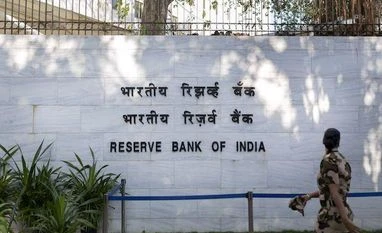The Reserve Bank of India (RBI) on Wednesday gave banks time till October 31 to comply with its guidelines on current account and overdraft facilities. The central bank indicated that it was in no mood to change the proposed rules, but would only allow for stretching the timeline for smoother implementation.
The initial deadline had ended on July 31, leading to thousands of current accounts being closed or frozen by banks. Lenders had requested the RBI for some more time to resolve the operational issues in implementing the provisions of the August 2020 circular in letter and spirit.
According to bankers, the accounts that were frozen can now be operationalised for three more months, during which banks would be able to iron out the issues. State Bank of India Chairman Dinesh Khara said while most of the challenges had already been addressed, the timeframe given by the RBI was reasonable “to engage with clients on the matter”.
“Banks will be able to resolve the outstanding issues harmoniously in this period,” Khara said. The frozen accounts, he said, could now be reopened for the ease of migration to a new arrangement.
Till now, banks were closing accounts or freezing them unilaterally, but now they will have to consult the clients about the migration path, bankers say.
A senior banker with a private bank said most current accounts were frozen and not closed outrightly. The debit side was kept open, while the credit side was frozen. That means the accounts could be used for payment, but no fresh money was allowed to be deposited in them.
However, there are some cases where accounts have been closed permanently.
HITTING PAUSE
- RBI not likely to dilute current account norms
- Banks in the interim had frozen thousands of accounts on the credit side
- After unfreezing the accounts, banks will guide clients towards migration
- Accounts already closed unlikely to be reopened
- IBA to coordinate rules with the RBI on behalf of banks
“Banks have been giving notices to their clients for 30 days. Responding to those notices, many accounts have been closed already. Besides, banks also closed a few accounts on the last day, and settled the outstanding in many cases. They cannot be reopened,” said another private banker, who said the RBI relief should have come before the deadline, and not after four days.
Pushing the deadline to October 31, the RBI said, “This extended timeline shall be utilised by banks to engage with their borrowers to arrive at mutually satisfactory resolutions within the ambit of the circular.”
“Banks shall ensure that the contents of the circular are implemented in letter and spirit without causing undue inconvenience to their borrowers,” the RBI said in its notification.
Cases that banks are unable to resolve themselves will have to be escalated to the Indian Banks’ Association (IBA) for appropriate guidance. The banking industry lobby would flag any regulatory considerations required to the RBI by September 30. This may indicate that the October 31 deadline is flexible, provided banks sort out the issue with their customers and come to a solution.
In the original circular, the RBI had said a customer can open a current account with any bank if she has not availed of overdraft facility from any bank, and the exposure to the banking system is less than Rs 5 crore. If the exposure is between Rs 5 crore and Rs 50 crore, the lending bank can allow the customer to open a current account as well.
However, for large borrowers above Rs 50 crore exposure and having multiple bank exposures, current account and cash credit/overdraft facility has to be with a single bank. In essence, a customer has to have a single current account, and that too with the bank with which it has a loan facility running. In the case of multiple banks, the borrower and the banks can decide mutually where to keep the current account.
The current account has to be run through an escrow mechanism, and “current accounts of such borrowers can only be opened/maintained by the escrow managing bank,” the RBI had said in its August circular.
The RBI’s proposed rules gave rise to problems in many cases, as firms generally take loans from public sector banks, but run current accounts with private and foreign banks that offer better services. The RBI wanted to stem this, saying the core banking system (CBS) connects all the banks and the firms should not have any problem integrating accounts. The idea was to make sure that funds are not routed through multiple check-in accounts, and that by limiting such accounts within one bank, the firms are better monitored.
Unlock 30+ premium stories daily hand-picked by our editors, across devices on browser and app.
Pick your 5 favourite companies, get a daily email with all news updates on them.
Full access to our intuitive epaper - clip, save, share articles from any device; newspaper archives from 2006.
Preferential invites to Business Standard events.
Curated newsletters on markets, personal finance, policy & politics, start-ups, technology, and more.
)